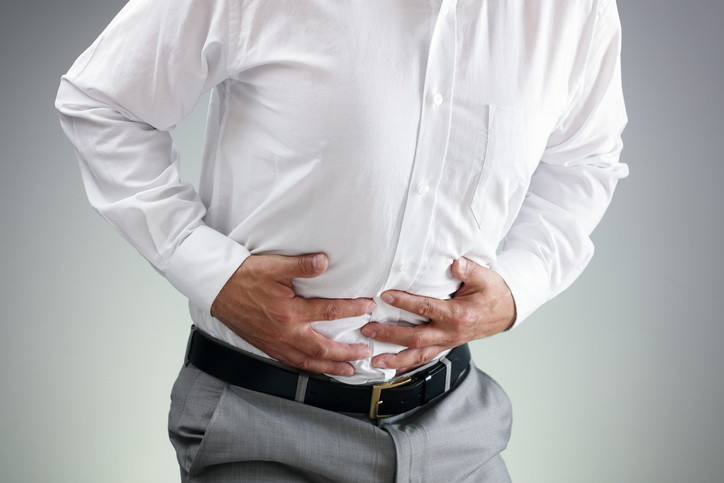Please do not ignore your stomach pain after a car accident–it could be a symptom of a severe injury. If you or your loved one sustained injuries from an accident caused by another driver, call one of our Eason & Tambornini personal injury attorneys to learn more about what could be done about your injuries. We can answer your questions about why you have diarrhea, a seatbelt bruise, or a swollen stomach after a car accident and what some common late-appearing car accident injuries are. Our attorneys regularly handle abdominal injuries caused by accidents, so call us now to schedule a consultation.
Learn more about our Sacramento Car Accident Attorney Services.
Why do I have diarrhea after a car accident?
 It’s not expected to develop diarrhea after a car accident, but if you have this symptom, it could mean that your digestive tract was injured during the collision. There could be something wrong with your intestine that is causing the malabsorption and diarrhea.
It’s not expected to develop diarrhea after a car accident, but if you have this symptom, it could mean that your digestive tract was injured during the collision. There could be something wrong with your intestine that is causing the malabsorption and diarrhea.
However minor they may be, accidents are very stressful. They can affect your mental and emotional well-being and your bodily functions. Studies have shown that stress and anxiety can induce diarrhea and also worsen irritable bowel syndrome, so these could be the cause of your loose bowel movement.
To ensure nothing’s wrong with your bowels, you must return to your doctor for a GI evaluation and laboratory tests. This will include an ultrasound and a CT scan of the abdomen to look for injuries to the abdominal organs.
Why do I have a seat belt bruise after a car accident?
During the collision, the force will throw your body forward. The seat belt will keep you in your seat and prevent you from hitting the dashboard or flying through the window. But in the process, as the seat belt restrains you, it may dig into the soft tissues of your shoulders, chest, abdomen, and lap and cause significant bruising over these regions.
If you’re having pain in these areas, you can take an over-the-counter painkiller to at least control it. If some swelling occurs, over-the-counter anti-inflammatory medication can help reduce the swelling. It’s also perfectly okay to apply a cold compress over these regions to help keep the pain and swelling down. You can keep the cold compress over the areas for about 20 minutes and switch to a hot compress after a couple of days.
Why do I have a swollen stomach after a car accident?
A swollen stomach is a sign of abdominal trauma and could mean severe injuries to vital organs and blood vessels in the abdominal cavity.
During car accidents, blunt trauma could cause massive injuries to the internal organs. If these organs rupture or are punctured, they could bleed into the abdominal cavity and cause blood to pool in the cavities. This collection of blood could contribute to abdominal pain and swelling.
A swollen stomach may also be due to injuries to the abdomen itself. The blunt trauma could rupture the blood vessels of the stomach, resulting in discoloration and the formation of a hematoma. Because there is tissue injury, there will also be inflammation and swelling.
If you have a swollen stomach and pain symptoms that won’t go away, please visit your doctor immediately for proper medical care. Imaging studies will be ordered to check the abdominal cavity for any abnormalities.
What are other late-appearing car accident injuries?
You must watch out for late-appearing symptoms and injuries if you were involved in a car accident.
Firstly, headaches and migraines could mean a severe concussion or brain injury. It could also mean a blood clot formation or hematoma in the brain.
Secondly, whiplash can be a late-appearing injury. Symptoms of whiplash include painful neck movements, limited range of motion, tenderness upon palpation, headaches, neck stiffness, and neck pain.
Thirdly, back pain is a late-appearing injury from disc herniation, bulging disc, back muscle strain, back muscle spasm, facet joint fractures, and impinged nerves.
Fourthly, numbness and radiculopathy are widespread and could mean nerve impingement or a pinched nerve. Symptoms include pain radiating down the distribution of the injured nerve, numbness, and tingling or burning sensations.
Fifthly, changes in cognitive and psychological behavior could mean brain injury.
What can you do?
Stomach pain and swelling can mean more than just abdominal bruising or discoloration. It can involve severe injuries to the internal organs. If you or a loved one sustained abdominal injuries after a collision, get in touch with a lawyer who can help you understand why diarrhea, swollen stomach, and seatbelt bruises could develop after an accident or what the common late-appearing car accident injuries are. Our Eason & Tambornini car accident attorney in Sacramento regularly handles traumatic injuries, including stomach pain, after a car accident. If you have any questions about the legal process, please get in touch with us so we can help you with your case.
The information provided on this blog is for informational purposes only and not a substitute for professional medical advice, diagnosis, or treatment. Always seek the advice of your physician or other qualified health provider with any questions you may have regarding a medical condition. Never disregard professional medical advice or delay in seeking it because of something you have read on this blog.
